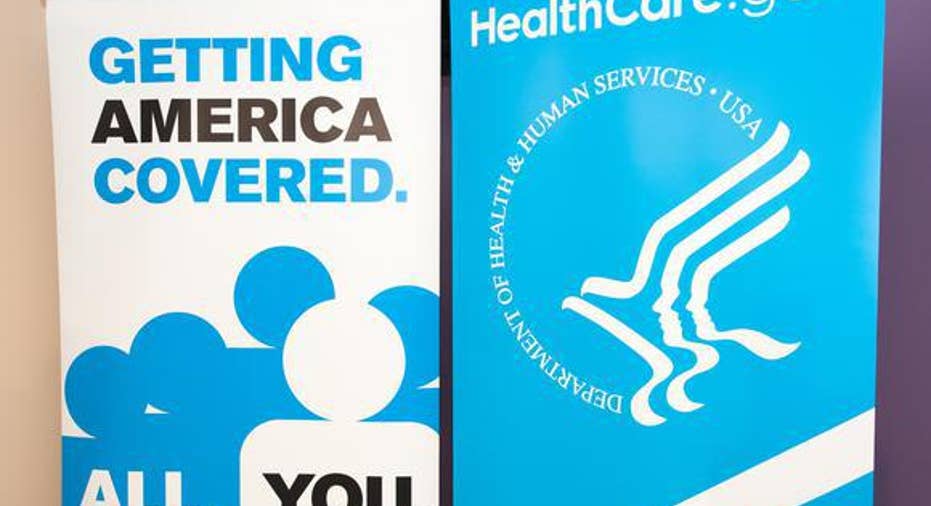What Happens to Obamacare Penalties in 2016?

Image: HealthCare.gov.
The Affordable Care Act has led to millions of Americans getting health insurance coverage, and a key aspect of Obamacare that gave people an incentive to get covered was the fact that it imposed penalties for not having adequate insurance. Those penalties were originally modest, but they climbed sharply in 2015 and are set to reach their highest level yet in 2016. Let's look more closely at what will happen to Obamacare penalties in 2016 and what it means for those without coverage.
Obamacare penalties over the yearsAs in past years, the Obamacare penalty for 2016 consists of two parts. First, the legislation imposes a per-person penalty of $695 per adult and $347.50, with a family maximum of $2,085. Second, a separately calculated income-based penalty equal to 2.5% of income above the relevant filing threshold applies. Taxpayers are then required to pay whichever of the two resulting amounts is larger.
That framework is no different from what it has been since 2014, when Obamacare penalties first went into effect. However, the amounts have risen sharply. As you can see in the chart below, the per-person penalties will more than double in 2016 compared to 2015 levels, and over the course of just two years, penalties will have risen more than sevenfold.
Source: Author based on figures from Healthcare.gov.
What the Obamacare penalties mean for typical situationsThere's been a lot of confusion over the Obamacare penalties because of the way the income-based provisions affect the calculation. A couple of examples can make it easier to understand.
Say you're a single taxpayer with no kids earning $50,000 per year and no qualifying health insurance coverage. For 2016, your penalty based on the per-person amount would be $695. The filing threshold for single filers should be $10,350, leaving your income-based penalty equal to 2.5% of the $39,650 of your income that exceeds that threshold. That calculation yields $991.25, and since that's greater than $695, it's what your final Obamacare penalty for 2016 will be. That's up from a $794 penalty in 2015 and a $398.50 penalty in 2014.
For comparison, take a married couple with two children and total income of $75,000. For 2016, the penalty using the per-person amounts would add up to $2,085, exactly equal to the maximum. The filing threshold for joint filers should be $20,700, leaving $54,300 subject to the 2.5% income-based penalty amount. That works out to $1,357.50, which is less than the per-person calculation. So the final penalty is $2,085. That's up from past years, but note that in 2014 and 2015, this family would have paid a penalty based on income rather than the per-person penalties. The 2015 penalty would have been $1,088 and the 2014 penalty $547.
The (sort of) good newsFortunately, 2016 is the last year that you'll see huge increases in penalties under Obamacare. Going forward, the 2016 amounts will be indexed for inflation, so future rises are likely to be much more modest.
With such high amounts for 2016 and beyond, it still makes sense to look for exemptions from the Obamacare penalty. As the linked article describes in greater detail, there are a host of income-related and hardship-related exemptions available that can reduce or eliminate your penalty entirely.
Penalties under the Affordable Care Act are one of the most controversial provisions in the legislation, and they've drawn a lot of fire from opponents of the program. With penalties rising so much in 2016, you can expect the uproar to get even louder over whether the health-care reform law needs reforms of its own.
The article What Happens to Obamacare Penalties in 2016? originally appeared on Fool.com.
Dan Caplinger has no position in any stocks mentioned. The Motley Fool has no position in any of the stocks mentioned. Try any of our Foolish newsletter services free for 30 days. We Fools may not all hold the same opinions, but we all believe that considering a diverse range of insights makes us better investors. The Motley Fool has a disclosure policy.
Copyright 1995 - 2015 The Motley Fool, LLC. All rights reserved. The Motley Fool has a disclosure policy.



















